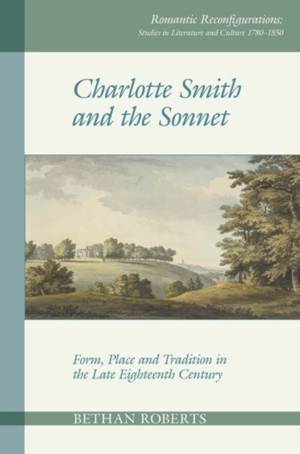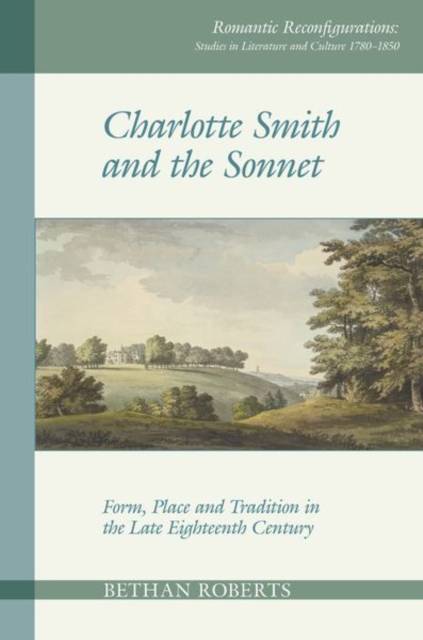
- Afhalen na 1 uur in een winkel met voorraad
- Gratis thuislevering in België vanaf € 30
- Ruim aanbod met 7 miljoen producten
- Afhalen na 1 uur in een winkel met voorraad
- Gratis thuislevering in België vanaf € 30
- Ruim aanbod met 7 miljoen producten
Charlotte Smith and the Sonnet
Form, Place and Tradition in the Late Eighteenth Century
Bethan RobertsOmschrijving
An Open Access edition of this book is available on the Liverpool University Press website and the OAPEN library.
This book offers the first full-length study of Charlotte Smith's Elegiac Sonnets and clarifies its 'place' - in multiple ways - in literary history as a work celebrated for 'making it new', yet deeply engaged with the literary past. It argues that Smith's sonnets are constituted by three intertwined concerns: with tradition, place and the sonnet form itself, whereby the subjects of Smith's sonnets - across birds, rivers, the sea, plants and flowers - are bound up with the literary context in which she wrote. Charlotte Smith and the Sonnet shows that Smith's verse engages more deeply with tradition than has hitherto been realised and revises our understanding not only of Smith's career but also of the sonnet in eighteenth-century England. The book also illuminates Smith's place in posterity, as a popular poet - influencing figures ranging from Wordsworth and Coleridge to Constable - who was subsequently obscured in literary history. It reveals the complex processes underpinning Smith's reception and paradoxical position from the late eighteenth century to the present day, and shows that the appropriation of place itself was an important way in which aspects of literary tradition have been negotiated and understood by Smith, her predecessors, contemporaries and successors.
Specificaties
Betrokkenen
- Auteur(s):
- Uitgeverij:
Inhoud
- Aantal bladzijden:
- 192
- Taal:
- Engels
- Reeks:
- Reeksnummer:
- nr. 9
Eigenschappen
- Productcode (EAN):
- 9781789620177
- Verschijningsdatum:
- 13/11/2019
- Uitvoering:
- Paperback
- Formaat:
- Trade paperback (VS)
- Afmetingen:
- 155 mm x 229 mm
- Gewicht:
- 276 g

Alleen bij Standaard Boekhandel
Beoordelingen
We publiceren alleen reviews die voldoen aan de voorwaarden voor reviews. Bekijk onze voorwaarden voor reviews.











